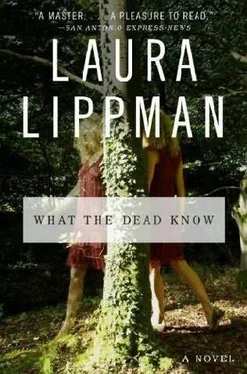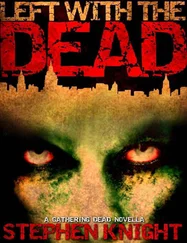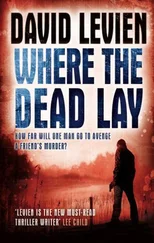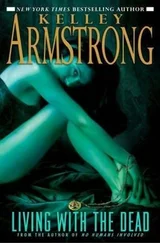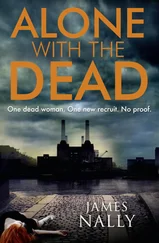“Agnaye Svaha,” he said, offering the first part of the ghee-smeared rice grains. “Agnaye Idam Na Mama.”
People often assumed that the Fivefold Path was another souvenir from his travels, but Dave was married to Miriam and working for the state when he first heard about it, at a party in Northwest Baltimore. The Fivefold Path turned out to be the nexus for most of the people at the party, held at a beautiful Victorian in Old Sudbrook. Dave had not known such houses existed when he was growing up in Pikesville, much less such people, yet Herb and Estelle Turner lived less than two miles from his mother’s former apartment. The Turners were at once warm and reserved, and Dave assumed that their grave dignity derived from the Fivefold Path. It would be some time before he knew about their troubles with their daughter, or Estelle’s fragile health. And although Miriam had always been skeptical of the couple, claiming they’d been fishing for converts that night, they only brought up the Fivefold Path when Dave asked about the house’s sweet, smoky smell, so unexpected on a warm spring night. He had suspected, hoped for, grass, which he and Miriam were anxious to try. But the fragrance was from the sunrise/sunset ritual of the Agnihotra, and it was almost as if it had baked its way into the bones of the house. As Estelle Turner explained the smell, and its connection to the Fivefold Path, Dave saw it as a way to be the Turners-gracious, poised, living in a beautiful yet unostentatious house.
For her part, Miriam said the Agnihotra made the house smell like shit, literally. Once they moved to Algonquin Lane, she had been adamant that Dave confine the practice to his study, with the doors closed. Even then she had despaired at the greasy residue the ghee left on the walls, a filmy sheen that resisted any and all cleaning methods. Now, Dave suspected, he could set up the ’Hotra on the dining room table and Miriam wouldn’t make a peep. She never reproached him anymore. He almost missed it. Almost.
Still your mind , he urged himself. Focus on your mantra . There was no point to the practice if he couldn’t lose himself in it.
“Prajapataye Svaha,” he said, making the second offering. “Prajapataye Idam Na Mama.”
Now he must meditate until the fire was out.
THE REPORTERS HAD come in threes-three newspapers, three television stations, three radio stations, three wire services. In each group there had been one reporter who pushed for an exclusive, a private chat with Dave and Miriam, but those young comers professed to understand when Chet told them that the Bethanys preferred to tell the story only so many times, once to each medium. The reporters were uniformly polite and kind, wiping their feet on the welcome mat, expressing admiration for the remodeled farmhouse, not that any work had been done in the past year. Their voices were gentle, their questions circumspect. One young woman, from Channel 13, teared up prettily while looking at the girls’ photos. These were not the school photos, the head shots against the sky-blue background. The television types explained to Dave and Miriam that these photos had been shown so many times that they had “lost their impact,” and it would be helpful to use new ones. They chose candid snapshots that Dave kept in his study, souvenirs of a trip to the Enchanted Forest on Route 40. Heather was sitting on a toadstool, cross-legged, while Sunny stood with arms akimbo, trying to pretend she wasn’t having a good time. But it had been a wonderful day, as Dave remembered it, with Sunny’s adolescent moodiness barely in evidence, everyone tender and sweet with each other.
The newspaper reporters, the last to troop through that day, had no qualms about using the school photos that had been circulating since the girls disappeared. Yet they insisted on a new photo of Dave and Miriam, sitting with the framed school photos on the coffee table in front of them. How Dave dreaded seeing that tableau in tomorrow’s newspaper-the awkward lie of his arm across Miriam’s shoulders, the distance between their bodies, their faces turned away from each other.
“I know that there was one ransom demand, in the first week,” said the reporter for the Beacon , the morning newspaper. “And it turned out to be a hoax. Have there been any similar dead ends over the past year?”
“I don’t know-” Dave looked to Miriam, but she would not speak unless pressed directly.
“I wouldn’t expect you to tell me anything that could hurt the investigation.”
“There were other calls. Not ransom demands. More like…taunts. Obscene phone calls, although not in the traditional sense.” He stroked his chin, where he was growing a beard, or trying to, and glanced at Chet, who was frowning. “You know, maybe you shouldn’t put that in? The police determined it was just some sick kid. He didn’t know us, or the girls. It didn’t mean anything.”
“Of course,” the Beacon reporter said, nodding in robust sympathy. Forty or so, he had been a war correspondent in Vietnam and spent time in the Beacon ’s foreign bureaus- London, Tokyo, São Paulo. He had arrived first and managed to convey this information about himself in the flurry of introductions at the beginning. His credentials were supposed to be a comfort, Dave supposed, an assurance that the assignment had been given to an accomplished professional. But Dave couldn’t help feeling that the man was trying to console himself, too. Two missing girls were not on a par with wars and foreign policy. He looked liked a drinker, his nose sprouting with broken blood vessels, his cheeks an unhealthy red.
“The one ransom demand-the one down at War Memorial Plaza -did they ever figure out who called that in?” This was the Light reporter, tiny and feisty. With her short pixie cut and miniskirt, she looked to be barely out of college. A jogger, Dave thought, eyeing the hard calves pressed into the lower rung of her straight-backed chair. He had started running after the first of the year, although it wasn’t the result of a New Year’s resolution. Like someone summoned by unseen voices, he had gotten up one day, put on sneakers and headed to Leakin Park, circling the tennis courts and the miniature train track. He had run to Crimea, the summer mansion built by the family that founded the B & O Railroad, passing the old church that his girls had believed was haunted. He was up to five miles a day now, but he had liked jogging better in the beginning, when it was hard and he had to focus on every rasping breath. Now that he reached the so-called runner’s high within minutes, his mind was free to roam again, and it always ended up in the same place.
“No…I…no-Look, there’s nothing new. I’m sorry. It’s been a year, and there’s nothing new. I’m sorry. We’re talking to you because we’re hopeful that your articles might prompt someone’s memory, might reach that one person who knows something… I’m sorry.”
Miriam shot him a look that only a spouse could interpret: Stop apologizing . His eyes replied, I’ll stop when you start .
The reporters didn’t seem to notice. Did they know? Had Chet told them-off the record, of course-all the family’s secrets, then persuaded them that they were irrelevant to the girls’ disappearance? Dave almost wished now that the whole story had come out. On his best days, he knew it wasn’t Miriam’s fault. Wherever Miriam had been that day-at an open house, here on Algonquin Lane, in a motel, in a motel, in a fucking motel -she couldn’t have saved the girls. Besides, he’d been in a bar for much of the afternoon, although he had managed to pull himself together and arrive at the mall to fetch the girls, no more than five minutes late. His chest still hurt, thinking about how he had felt that afternoon. Anger , assuming that the girls were late, inconsiderate. Panic , but a safe, this-will-soon-pass-and-I-can-be-angry-again panic. When forty-five minutes had passed, he checked with the mall security, and he still remembered with great affection the overweight security guard who had walked the corridors with him, his voice a rumbling bass of benign possibilities. “Maybe they took the bus home. Maybe they decided to take one of those shopper surveys, back in the offices. Maybe they got a ride home with a friend’s mother or father and thought they could get home in time to call you at your work.”
Читать дальше
